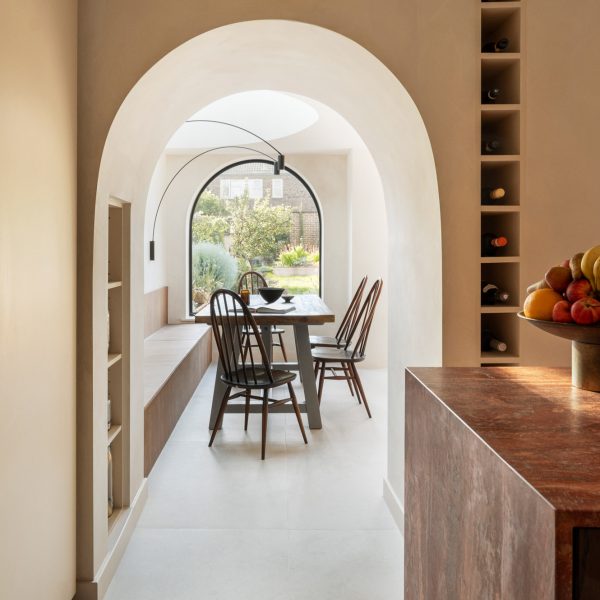Local architectural studio Polysmiths has aimed to bring Mediterranean warmth to a London terraced house with a sequence of structural arches and a mottled lime plaster finish.
The studio revamped the existing three-bedroom house in the east London suburb of Wanstead to taking cues the client’s childhood home in Gibraltar with a sequence of arches as a nod to the mix of British, Spanish and Moorish architecture found on the peninsula.
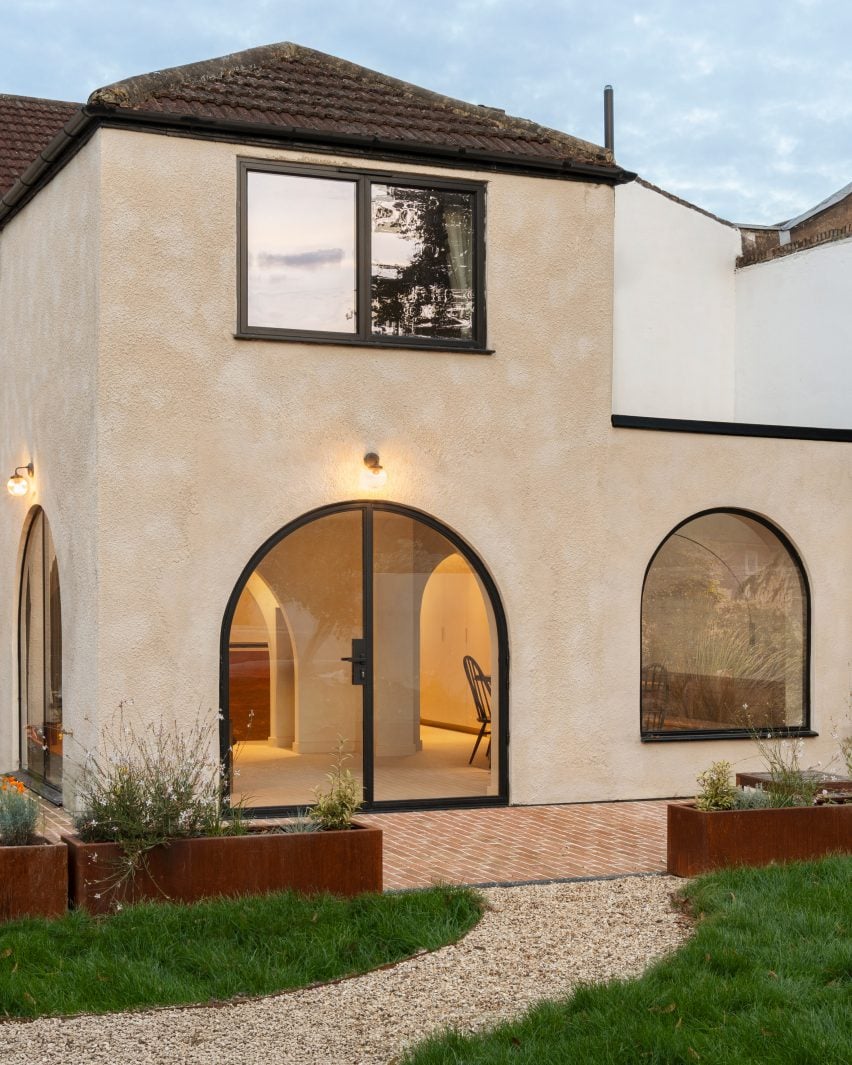
“The client hoped to translate a Mediterranean atmosphere into the new home in London, without being kitsch or derivative, and a lush garden,” said Polysmiths director Charles Wu.
“We eventually settled on using structural arches that support the existing rear wall, and connect with the extension, and the garden beyond.”
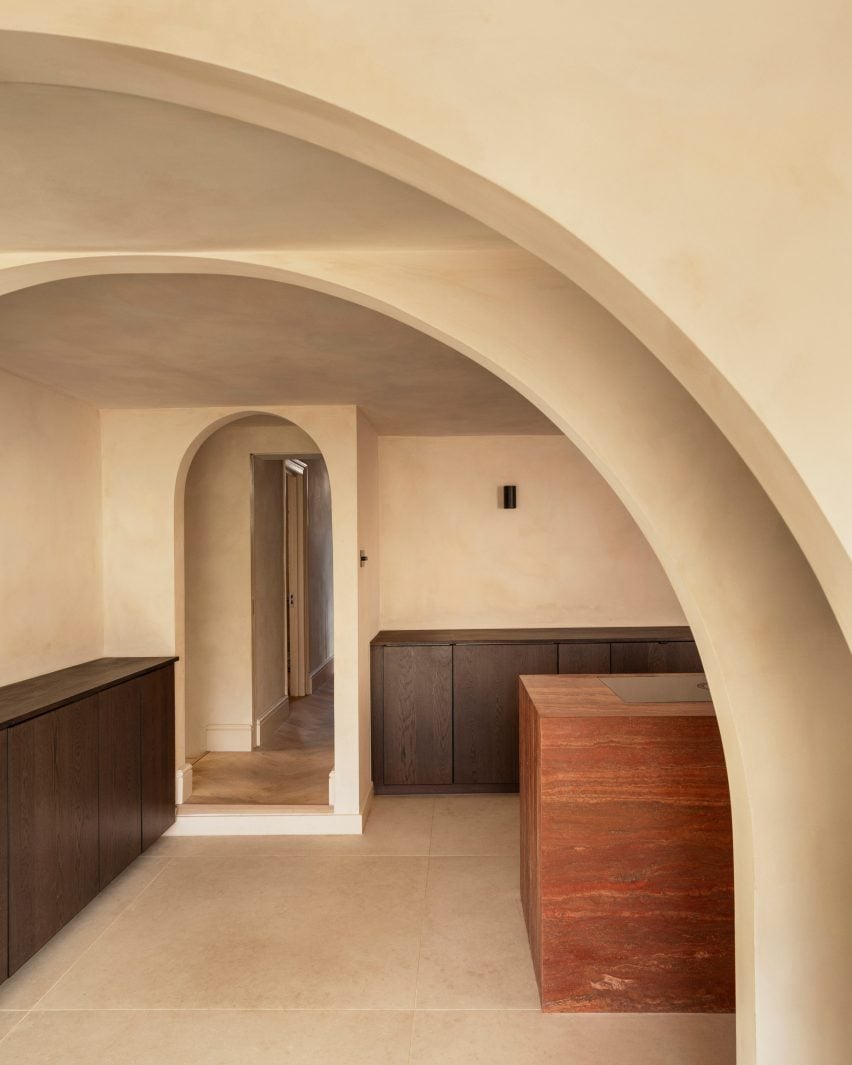
The home had not been upgraded since the 1980s and had a dark corridor leading to back rooms and a large west-facing garden.
To bring more light and openness into the house Polysmiths added a 34-square-metre extension to its side and rear and redesigned its ground floor layout to create a series of interconnected spaces for living and working.
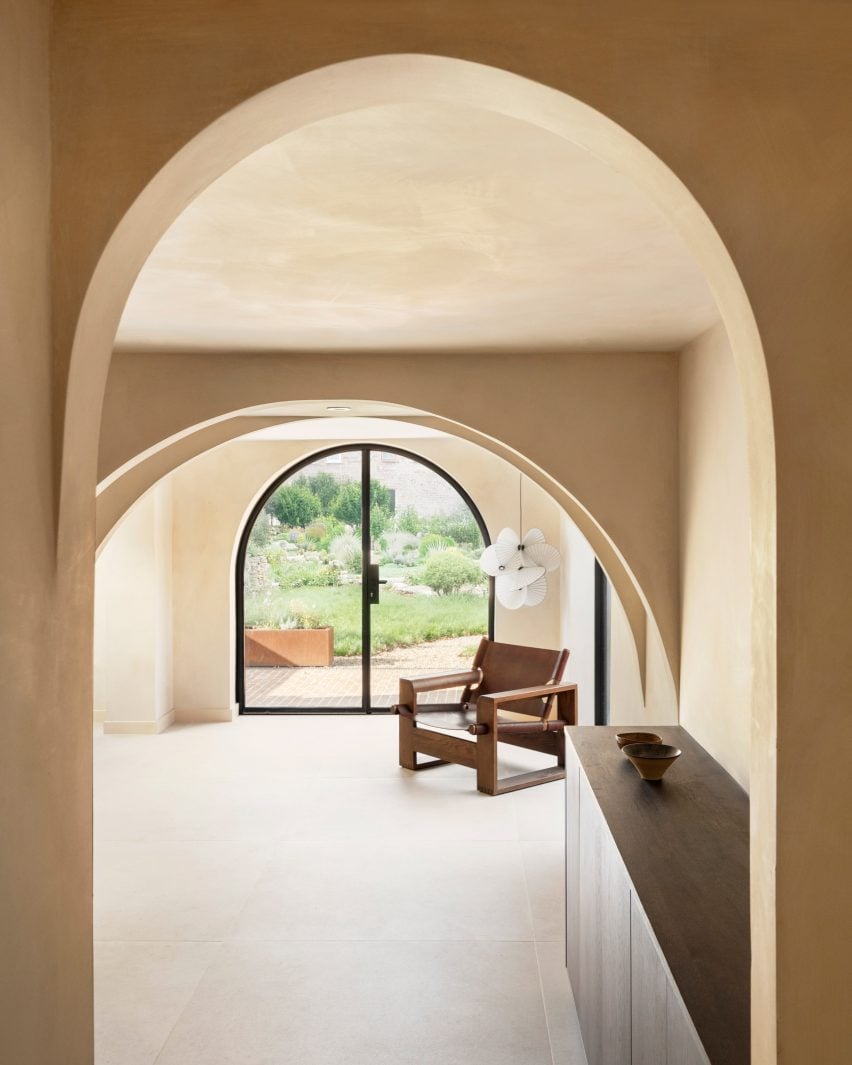
The blockwork arches, designed in collaboration with structural engineer Techne Engineering also reduced demolition and construction waste and eliminated the need to put in costly ground beams, Wu explained.
In addition to the arch structures, the design also used a palette of natural materials influenced by Mediterranean, with lime plastering chosen to create a soft tone on the walls. Tiles were added to the floors and bespoke walnut joinery used to create a warm interior.
Above the new dining room, the architects added a semi-circular “oculus” skylight to let more light into the space, while floor-to-ceiling arched windows provide uninterrupted views over the garden and patio.
In the middle of the kitchen, a red travertine stone kitchen island with a vein-like texture creates a focal point for the house and a place to entertain guests.
Another key aim of the project was to make the client’s garden a “second living room”. Polysmiths created a wide brick patio looking out onto olive and fruit trees as well as draught-resilient plants such as Lavender, Gaura, Rosemary, and Kniphofia.
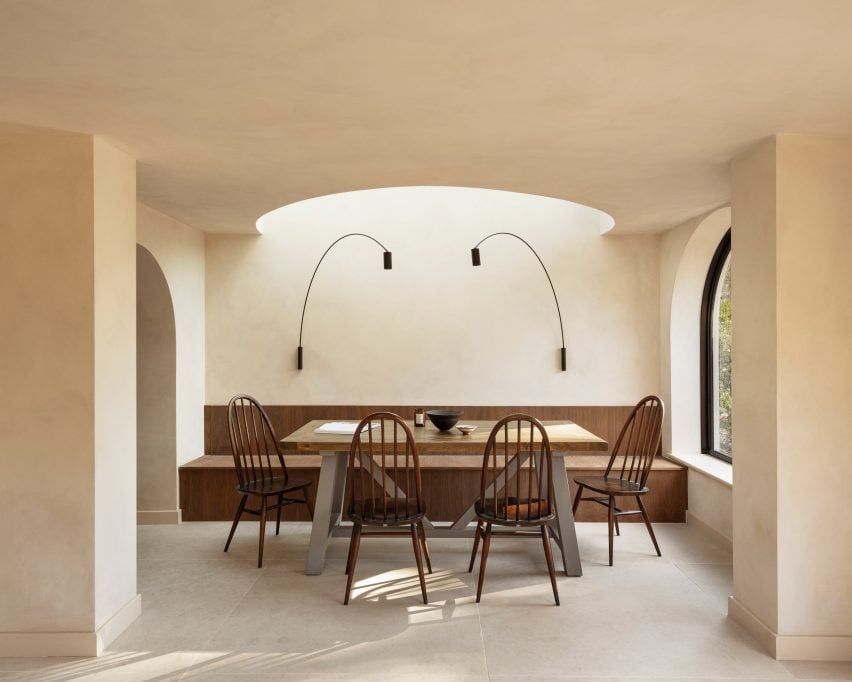
The extension was designed to work within the constraints of permitted development rights, meaning the studio did not need planning permission for the project.
The arched glazing for the new extension, and the material used on its exterior walls are all consistent with the original building.
The project also included a new bathroom added to the side extension, the renovation of the house’s entrance and a new staircase up to the upper floors.
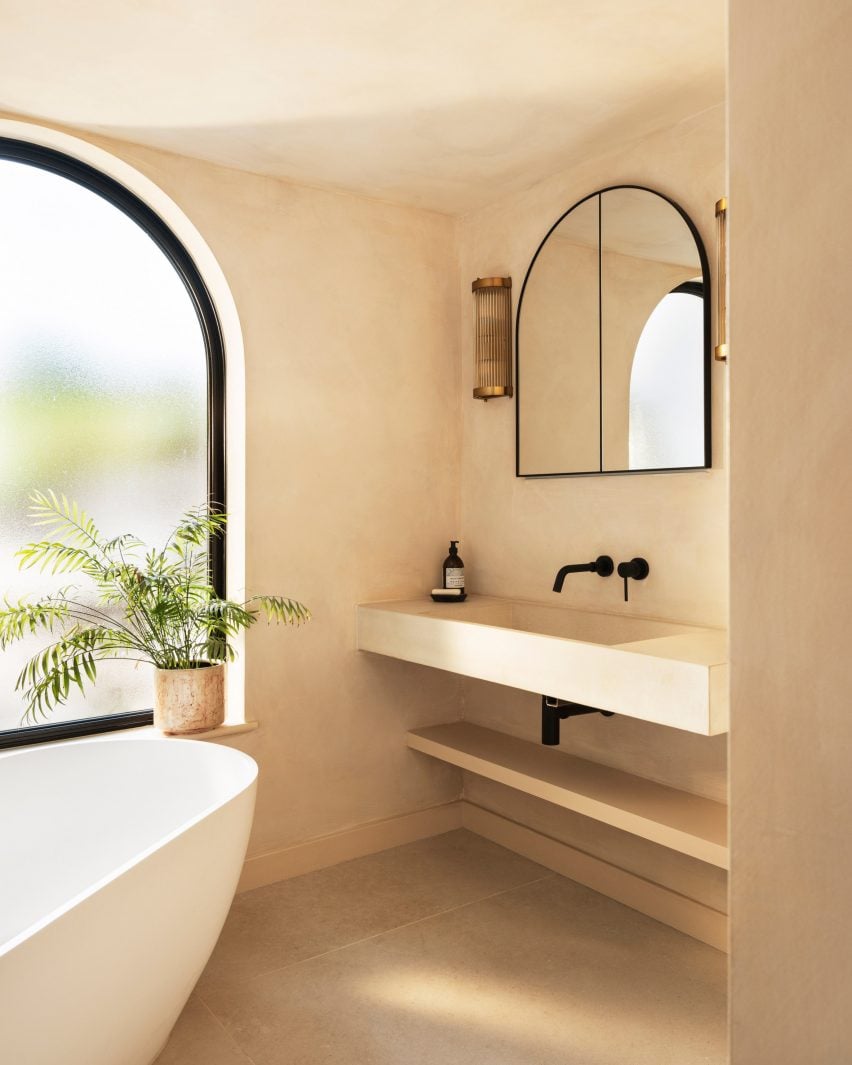
Polysmiths was founded by Wu in 2017. The studio’s previous projects include a redesign of a basement apartment in north London and a home with cork panelling on both the external and internal walls.
The photography is by Pierce Scourfield

